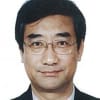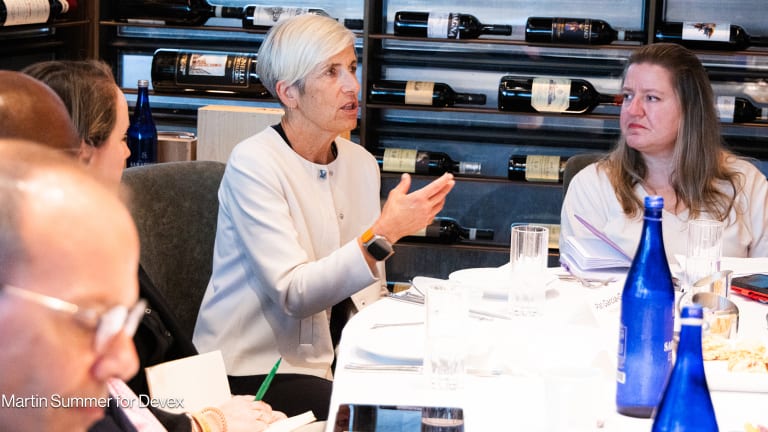
Self-care can be a highly effective piece of the integrated, people-centered health service and health system. In fact, I see self-care interventions as being among the most promising new approaches in primary health care.
According to the World Health Organization, self-care interventions include “evidence-based, high-quality drugs, devices, diagnostics and/or digital interventions that can be provided fully or partially outside formal health services and used with or without a health worker."
There are several advantages to including self-care interventions within national health system strategies. WHO recommends self-care interventions for every country and economic setting as a critical path to reaching universal health coverage, promoting health, keeping the world safe, and serving the vulnerable.
Opinion: The role of health care professionals in supporting self-care
Self-care has the potential to improve health outcomes for people while relieving pressure on stretched health care budgets. Catherine Duggan, CEO at the International Pharmaceutical Federation, explains why.
Ideally, self-care interventions should be available alongside facility- and provider-based health care services and should be highly targeted toward those individuals and conditions that stand to benefit the most from a self-care-focused approach.
While WHO has a role to play in putting forward guidance on self-care, real change is driven by policies at the national and community level. Policymakers have an obligation to help build an enabling environment for self-care. Policies that make individuals feel safe and supported and provide access to self-care products and interventions can improve the uptake of self-care behaviors and thus improve the health and well-being of the population.
Public health education campaigns can also help people feel supported and empowered to make decisions about their own health. However, to be effective, they need to be paired with access to self-care products including nonprescription medicines, dietary supplements, vitamins, and simple medical devices and tests designed for home use.
Thoughts from Dr. Zhang Qi on the role of traditional, complementary, and integrative medicine
At WHO, we say that traditional medicine is the sum total of the knowledge, skills, and practices based on theories, beliefs, and experiences inherent to different cultures — whether explicable or not.
Traditional medicine is used across the wellness spectrum, from the maintenance and improvement of health to the prevention and treatment of diseases. Traditional, complementary, and integrative medicine are often underestimated, despite a global demand for this type of care.
WHO's “Traditional Medicine Strategy: 2014-2023” seeks to guide and support countries in integrating traditional and complementary medicine, or T&CM, into national health systems as appropriate to the national context. T&CM products are also among the top five in the list of most downloaded products from WHO last year.
Traditional medicine has a unique role in self-care and supplements and practices can complement other self-care practices, providing patients with a holistic and integrative approach for managing their own health.
For example, a 2016 study in China suggested that primary care practitioners prescribe the ancient Chinese exercise taiji or tai chi as a culturally appropriate self-care exercise, which may have more impact than other physical exercises. Another example of intervention for self-care is the tai chi online training courses developed by a WHO Collaborating Centre.
“Appropriate care-seeking can empower individuals with the knowledge necessary to fully embrace self-care and make informed choices about their health.”
—Traditional medicine can be complementary to self-care efforts at the systems level as well. Traditional and integrative medicine practitioners have a key role to play in educating communities on disease prevention and public health issues.
Appropriate care-seeking can empower individuals with the knowledge necessary to fully embrace self-care and make informed choices about their health. This is also an important part of community engagement as traditional medicine is rooted in local communities and intercultural health and diversity.
Moving forward
The global conversation on self-care is not new. We know that it has been practiced by people for centuries.. Now, personalized self-care services and growing e-commerce platforms, coupled with the ways in which the COVID-19 pandemic disrupted national health systems, have ushered in a new era of self-care, and a new set of questions on what constitutes self-care, how people can best utilize self-care interventions, and where self-care fits within the health care continuum.
To support advocacy and broader recognition of self-care, we have actively collaborated in creating the first Self-Care Readiness Index, an action-oriented research report developed by the Global Self-Care Federation. It illustrates the self-care ecosystem in 10 diverse countries. It also identifies the critical enablers of self-care — such as patient empowerment — and then measures the self-care “readiness” of the selected health systems, identifying best practices and highlighting common challenges.
The index will help to further the global conversation on what governments can do to better support the uptake of self-care behaviors appropriate to their national context.
To find out more, and to view a copy of the recently launched Self-Care Readiness Index visit www.selfcarepromise.org









